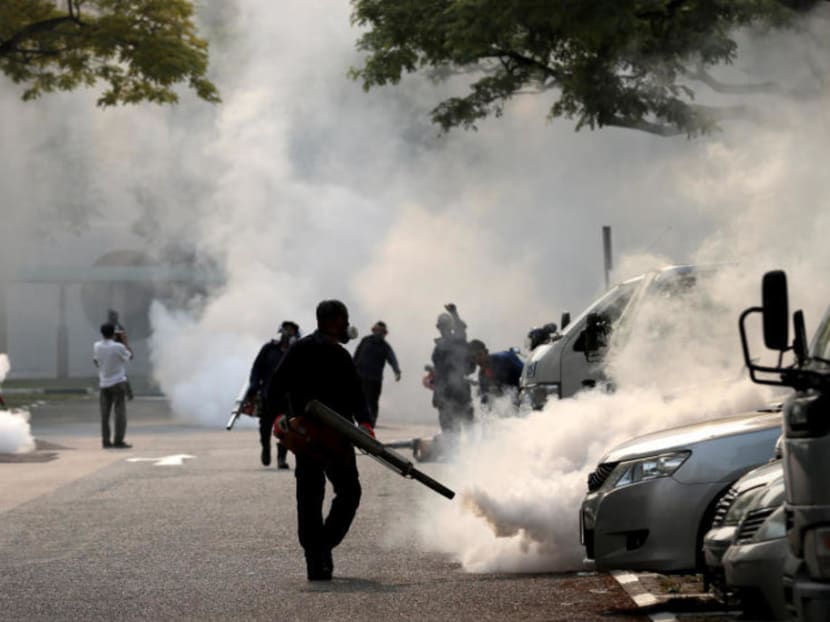Do not use fogging as routine mosquito-control measure: NEA
We thank Ms June Cheah Nicholls for her feedback (“Dengue fight: When is too much fogging unsafe?”; Sept 24).
We thank Ms June Cheah Nicholls for her feedback (“Dengue fight: When is too much fogging unsafe?”; Sept 24).
The National Environment Agency (NEA) emphasises source reduction of the Aedes mosquito as the primary focus of our dengue-control efforts.
NEA has formulated guidelines on fogging practices, which are shared with the pest-control industry.
Fogging should be used judiciously and not as a routine mosquito-control measure.
It is recommended where there is an increased presence of adult mosquitoes. Fogging is also necessary when there is a need to eliminate infective mosquitoes immediately during a dengue or other mosquito-borne-disease outbreak.
In such situations where fogging has to be carried out, it is imperative that all fogging operations are made known to NEA in advance via the Electronic Fogging Submission System.
The pest-control operator, managing agent or premise owner must also give the public notice about upcoming fogging operations.
Pest-control personnel are to be licensed and trained to handle pesticides. They are also required to follow proper procedures to protect the public and the environment.
The fogging pesticides permitted for use by NEA do not have a long residual effect on the environment, and the concentrations used are low and deemed safe by the World Health Organisation.
Information on the scope of work for mosquito control at different premise types, and its frequency, is on the NEA website.
Have views on this issue or a news topic you care about? Send your letter to voices [at] mediacorp.com.sg with your full name, address and phone number.










